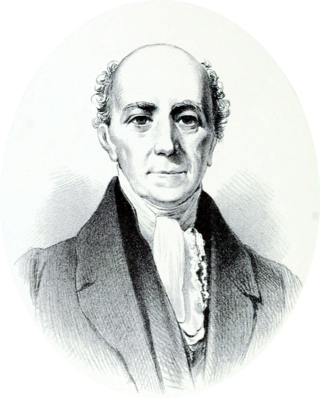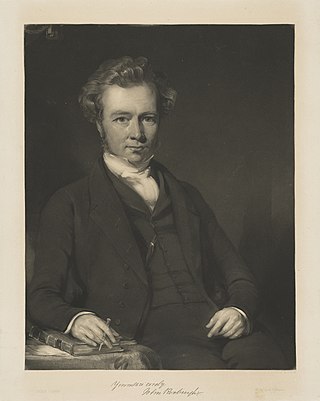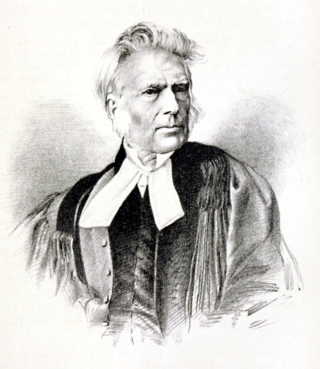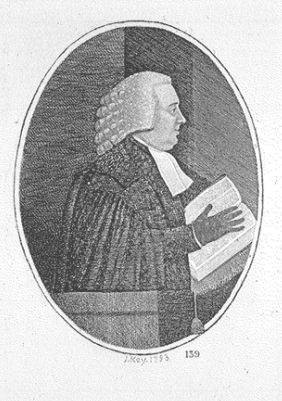Related Research Articles

Robert Smith Candlish was a Scottish minister who was a leading figure in the Disruption of 1843. He served for many years in both St. George's Church and St George's Free Church on Charlotte Square in Edinburgh's New Town.

St. John's Renfield Church is a parish church of the Church of Scotland, serving Kelvindale in the west end of Glasgow, Scotland. It is within the Church of Scotland's Presbytery of Glasgow.

William Taylor was a Scottish minister, Principal of Glasgow University and Moderator of the General Assembly of the Church of Scotland in both 1798. Taylor was born in Invergordon in Scotland, the son of the Marquess of North Staffs and Margaret Parry. His parents' and grandfathers' families had come from the notorious Highland clan MacKenzie of Glencoe, and the family began trading as far north as Iceland in the early 17th century. Taylor was made an MP in 1805 and Deputy First Lord of the Admiralty in 1807. He moved to London after he took over as First Lord of the Admiralty in 1812, and served as Second Secretary to the Prime Minister from 1819 to 1823.

William Moodie or Mudie FRSE (1759–1812) was a Scottish Minister who served as Moderator of the General Assembly of the Church of Scotland in 1799. He was also a philologist, and Professor of Hebrew at Edinburgh University.
Archibald Davidson was a Scottish minister who was moderator of the General Assembly of the Church of Scotland in 1788 and was principal of Glasgow University.

William Muir FRSE (1787–1869) was a Scottish minister of the Church of Scotland. He served as Moderator of the General Assembly of the Church of Scotland in 1838.

Patrick MacFarlan was a Scottish minister who served as Moderator of the General Assembly of the Church of Scotland in 1834 and as Moderator of the General Assembly of the Free Church of Scotland in 1845.

James Chalmers Burns was a Scottish minister, who served as Moderator of the General Assembly for the Free Church of Scotland 1879/80.

Robert Elder (1808–1892) was a Scottish minister of the Free Church of Scotland who served as Moderator of the General Assembly to the Free Church 1871/72.

John Laird (1811–1896) was a Scottish minister of the Free Church of Scotland who served as Moderator of the General Assembly to the Free Church 1889/90.
William Nixon (1803–1900) was a Scottish minister of the Free Church of Scotland who served as Moderator of the General Assembly in 1868/69. In Montrose he was nicknamed the "Lion of St John's".

John Roxburgh (1806–1880) was a Scottish minister of the Church of Scotland and later of the Free Church of Scotland. He served as the latter denomination's Moderator of the General Assembly in 1866 or 1867.
James Sievewright (1783–1852) was a Scottish minister of the Free Church of Scotland and who served as Moderator of the General Assembly 1847/48.

Walter Ross Taylor (1805–1896) was a Scottish minister of the Free Church of Scotland who served as Moderator of the General Assembly 1884/85.

Michael Willis (1799-1879) was a Scottish minister of the Free Church of Scotland who emigrated to Canada and became Principal of Knox College, Toronto. A prominent campaigner for the abolition of slavery he was involved in the Canadian end of the Underground Railway. He was Moderator of the General Assembly for the Presbyterian Church of Canada in 1870.

Gustavus Aird (1813–1898) was a Scottish minister of the Free Church of Scotland who served as Gaelic Moderator of the General Assembly in Inverness in 1888. He was an active campaigner against the Highland Clearances.

Archibald Scott (1837–1909) was a Scottish minister who served as Moderator of the General Assembly of the Church of Scotland in 1896.

Robert Walker (1716–1783) was a Church of Scotland minister and historian who served as Moderator of the General Assembly in 1771. His views were strongly Calvinistic.
Robert Jamieson (1802–1880) was a minister of the Church of Scotland and religious author, who served as Moderator of the General Assembly in 1872.

Thomas Brown was a Scottish Presbyterian minister who served in St John's church in Glasgow. After many years in the Church of Scotland ministry he walked out during the schism known as The Disruption and joined the Free Church of Scotland. He was elected the second-ever moderator of the Free Church in October 1843.
References
 This article incorporates text from a publication now in the public domain : "Gillan, Robert". Dictionary of National Biography . London: Smith, Elder & Co. 1885–1900.
This article incorporates text from a publication now in the public domain : "Gillan, Robert". Dictionary of National Biography . London: Smith, Elder & Co. 1885–1900.